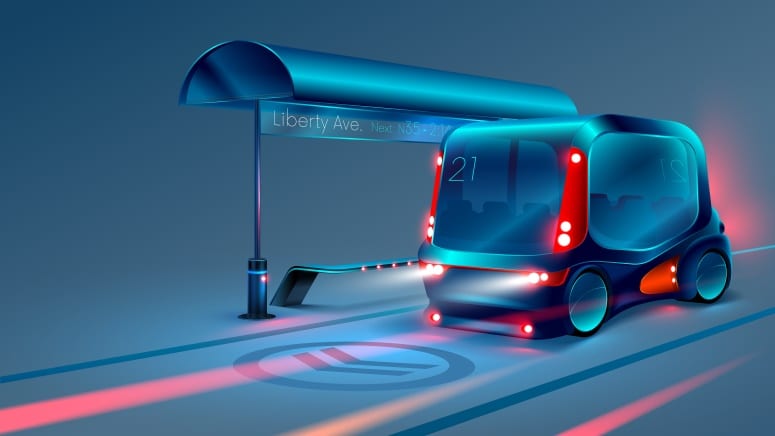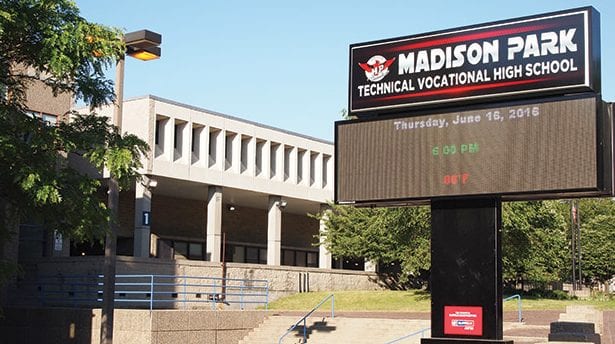
Preparing Our Students for Tomorrow’s EV Jobs
Preparing Our Students for Tomorrow’s EV Jobs
Abstract
Driven by new technologies, mobility options are entering a period of radical changes. The first of these changes is already well underway, the move to Electric Vehicles (EVs). EVs will have an enormous impact on our students career opportunities, demanding new skills and rendering other skills obsolete. Schools must equip students with these new skills, so they will be ready for tomorrow’s jobs. We envision a cooperative, collaborative effort involving schools throughout Massachusetts, focused on creating new EV courseware and Mobility Centers.
Preparing Students for Tomorrow’s Jobs
Tomorrow’s job landscape will not look like today’s! As educators, we must provide students with the career skills these new jobs will require. Hands-on STEM education is key, with classes tied to tomorrow’s technologies.
Students who are comfortable with tomorrow’s technologies will be able to navigate the roads of economic change; those who are mystified and unsure will be lost. This hard reality applies to kids from underserved communities with life-altering consequences. Limited access to computer technology already puts them at a disadvantage and they are vulnerable to being left farther behind as future technologies emerge. Educators must look ahead and identify the technologies that are coming.
Mobility Industry Jobs Face Huge Changes
Economists, business analysts, and public planners now speak of ‘mobility’ rather that ‘transportation’. While the words may seem interchangeable, transportation means the act of moving people or products, while mobility encompasses all the ways people can move themselves or their products.
A dynamic, innovative mobility industry is now evolving, with huge implications for the world of work our students will face. Many of today’s jobs will disappear, but new ones will be created.
An amazing array of new technologies, and new business models, will define mobility’s future.[1] One part of the new reality is already here and ready for mass adoption, Electric Vehicles.
Electric Vehicles will dominate by 2035
EV technology is on the road today. Tesla is in the lead, while every other car maker in the world invests big dollars to catch up. In 2020, EVs (combining numbers for all-electric and hybrid models) made up about 2.5% of worldwide car sales. By 2029 that will climb to 25% and it will be over 50% by 2035, the year General Motors has targeted for achieving a completely electric product line.
The move to EVs is being driven by multiple factors. They are safer and quieter than gasoline powered vehicles, while also being less expensive to maintain because they have significantly fewer parts. Any increase in gasoline prices will boost EV sales, while growth will also be encouraged by government policies related to air quality and global warming. But the single biggest driver is the incredible leap in battery technology, with decreasing prices, expanding range, and extended useful lives. Tesla EV batteries now deliver a driving range of 400 miles, with a 1 million mile lifetime expected for the next generation. The new batteries make EVs practical, reliable, and affordable.
EV Technology and Tomorrow’s Jobs
By the end of this decade, millions of jobs will be related to manufacturing, maintaining, and repairing EVs. The people who fill those jobs will need new skills, because virtually everything in an EV powertrain is different from what is found in a gasoline powered vehicle. Tomorrow’s EV workforce, our students, will need to understand complex battery and recharging technologies, high performance electric engines, and completely new types of transmissions. Even suspension systems and tires will change because EVs are much lighter and last longer.
Preparing Massachusetts Students for EV Jobs
To equip Massachusetts students with the EV skills they’ll need, we envision a collaborative, cooperative effort by schools throughout the state. They will be innovative schools, committed to STEM education, ready to share costs and resources to achieve mutual goals, including:
- Creating focused, hands-on EV courseware
- Designing educational Mobility Centers to deliver that courseware
- Ensuring that all EV courseware is aligned with Automotive Service Excellence (ASE) standards
- Engaging with EV manufactures and dealership associations for internships, job placements and financial support
Get Involved:To learn more, and share your ideas, reach out to any of the authors. Our Cardinal Works program has successfully migrated MIT courseware on autonomous vehicles into Boston high schools. We’d enjoy discussing your school’s situation and how we can help prepare all our students for tomorrow’s EV jobs.
Kevin McCaskill Royal Bolling James Sproul
Executive Director Co-founder Co-founder
Madison Park Technical Vocational HS Cardinal Works Cardinal Works
kmccaskill@bostonpublicschools.com royalbolling@yahoo.com jsproul@sproulco.


Recent Comments